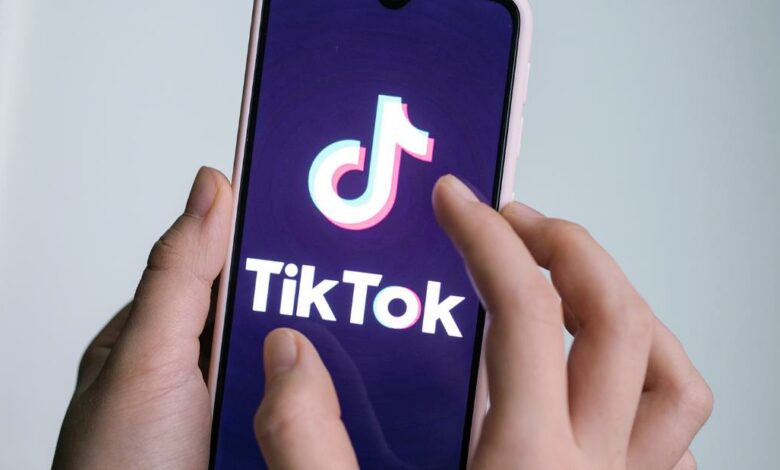
A law that requires TikTok to find a new, non-Chinese owner or face a ban is scheduled to go into effect Sunday — and there is little indication the company is set to pull off a sale before then.
That means 170 million Americans could lose access to a platform they use to find entertainment, news and community, or even run a business, after TikTok became the first new platform in years to pose a real competitive threat to American social media stalwarts like Instagram and YouTube.
The Supreme Court on Friday upheld the law, bringing the ban one step closer. And the company itself said, without immediate intervention from the Biden intervention, it would shut itself down on Sunday.
But although that’s now less than two full days away, there are still many unknowns about what exactly will happen.
Will the outgoing President Joe Biden administration provide direction? That’s not sounding likely.
Will incoming President Trump intervene? If the list of expected attendees at his inauguration is any indication, it’s likely he’ll try.
Here’s what we know — and what we don’t — about the ban deadline day.
Will my app go away?
TikTok itself turned up the pressure on Friday night, saying it would go dark on Sunday night absent explicit “clarity and assurance.”
“The statements issued today by both the Biden White House and the Department of Justice have failed to provide the necessary clarity and assurance to the service providers that are integral to maintaining TikTok’s availability to over 170 million Americans,” the statement, posted online late Friday, read.
“Unless the Biden Administration immediately provides a definitive statement to satisfy the most critical service providers assuring non-enforcement, unfortunately TikTok will be forced to go dark on January 19.”
Experts had expected the app to be removed on Sunday from the Apple and Google app stores — which could face fines under the law for continuing to host TikTok after the deadline. That would mean anyone without the app already on their phones couldn’t download it, but existing users could continue accessing it, without security updates, until it eventually becomes glitchy or stops working.
But a Biden administration official told CNN Thursday that the outgoing president plans to leave it to Trump to enforce the ban. “Our position on this has been clear: TikTok should continue to operate under American ownership. Given the timing of when it goes into effect over a holiday weekend a day before inauguration, it will be up to the next administration to implement,” the official said.
That could mean that, given Trump takes office the day after the ban takes effect, there would be no one to explicitly instruct app stores to remove the platform on Sunday, potentially leaving them to decide for themselves whether to comply.
So, users should mentally and emotionally prepare to potentially lose access to the app starting Sunday, unless they want to download a VPN to get around the ban.
Why TikTok was banned
The central allegation against TikTok is that the company poses a potential national security risk. US officials have worried that the Chinese government could pressure TikTok or its parent company, ByteDance, into handing over the personal information of its US users, which could then be used for Chinese intelligence operations or the spreading of Chinese-backed disinformation.
There’s no evidence yet that that has actually happened. Still, policymakers and security experts have said China’s national security laws make it a possibility — identifying a kernel of risk that fits into a broader anti-China narrative linked to issues including trade, human rights and authoritarianism.
Those concerns were renewed after a report in 2022 suggested US user data had been repeatedly accessed by China-based employees. TikTok has disputed the report. In recent years, the company says it made changes to how it handles US user data, including storing it in US-based severs owned by Silicon Valley tech company Oracle.
President Joe Biden signed a bill in April that required the platform to be sold to a new, non-Chinese owner or be banned in the United States.
Who supported a TikTok ban?
The law to ban TikTok was widely supported across both sides of the aisle, with the US House of Representatives approving it with a bipartisan vote of 360-58. House Republican leadership attached the TikTok bill to funding for Ukrainian military equipment and Israeli missile defense, putting the pressure on Senate lawmakers to consider the whole package in a single up-or-down vote.
The bill was then fast-tracked through the Senate, passing less than a week later. The Biden administration ordered all executive branch employees to remove TikTok from their phones within 30 days in February 2023.
What’s Trump going to do?
Although the idea of a TikTok ban was born during Trump’s first presidency, he has since made a 180-degree turn and said he wants to save the app.
The complicating factor: the ban is set to go into effect one day before Trump takes office.
Trump had asked the Supreme Court to temporarily pause the ban’s implementation to give him time, as president, to negotiate a sale of TikTok. And sources familiar with his plans told CNN on Wednesday that he was weighing whether to delay the ban and preserve Americans’ access to the platform while he works on a deal.
TikTok CEO Shou Chew is set to be seated on the dais, alongside other leading tech CEOs, at Trump’s inauguration — perhaps a sign of just how serious the incoming president is about trying to save the app.
And with some in Congress now suggesting that TikTok might need more time to find a buyer, Trump could find support in trying to push off the ban to a later date. The law gives the president the option to extend the ban by 90 days, but triggering the extension requires evidence that parties working on purchasing have made significant progress, including binding legal agreements for such a deal — and TikTok’s parent company, ByteDance, hasn’t publicly updated its stance that the app is not for sale.
Is a sale still possible?
Even if the TikTok ban does go into effect, a sale of the app to a non-Chinese owner could restore access for US users.
A group formed by billionaire entrepreneur and former Los Angeles Dodgers owner Frank McCourt and including “Shark Tank”-famous investor Kevin O’Leary made a formal bid to buy TikTok from China-based ByteDance earlier this month. The group wants to buy TikTok’s US assets, albeit without the app’s beloved algorithm — which China has indicated it will not allow to be sold — and rebuild the platform with what they say would be a more transparent feed, and more user control over their data.
Chinese officials have also reportedly discussed the possibility of selling TikTok to X owner Elon Musk, whom they might consider the friendliest possible American owner. Musk and ByteDance have not commented on the reports; TikTok called them “pure fiction.”
McCourt told CNN on Thursday that while ByteDance’s bankers have confirmed receipt of his group’s offer, he expected the company was “waiting to hear what the Supreme Court does” before seriously engaging in any acquisition conversations. “But they haven’t told us to go fly a kite,” he said, adding that following the court’s ruling, “I hope we can have a robust conversation.”
But here’s the thing: Even if TikTok is sold and Americans can keep using it, it will in many ways be a different app. Because China is almost certain to block the sale of the algorithm along with TikTok’s US assets, the app’s “For You” feed will have to be rebuilt by the new owner — which will be no easy task. Many tech giants have already spent years trying to replicate TikTok’s algorithm without quite succeeding.
Spinning off an American-only version of TikTok could also mean the rest of the world has to download a new app to access US users’ content.
The bottom line is, until Sunday — and probably extending at least into next week — there may be more questions than answers for TikTok users about the app’s future.
How much is TikTok worth?
TikTok’s US assets, without the algorithm, are estimated to be worth between $40 billion and $50 billion, according to Wedbush Securities analyst Dan Ives.
But since the algorithm may be where much of TikTok’s value lies, putting a firm dollar figure on the company is difficult.
McCourt’s group is not saying publicly how much it offered, although the billionaire previously indicated he valued the assets at around $20 billion.
“We will refrain from publicly sharing the financial specifics of our offer until ByteDance is in a position to review our proposal,” the group said in a statement.
CNN’s Brian Fung and Jack Forrest contributed to this report.




